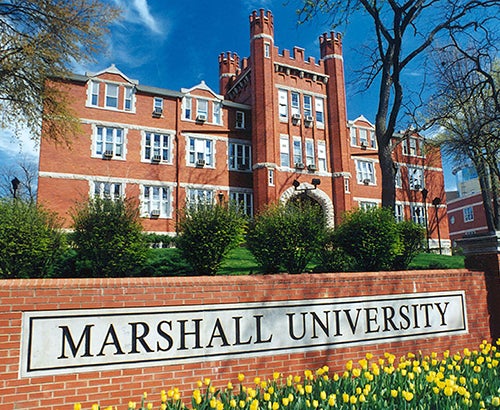The study, titled “Serratus Anterior Fatigue Reduces Scapular Posterior Tilt and External Rotation During Arm Elevation,” was published July 21. Harrison, a 2019 graduate, completed the research as his thesis project in Marshall’s Master of Science in Exercise, Athletic Training Emphasis program under the guidance of Timmons and Garrett.
To conduct the study, Marshall University students and community members were recruited to participate, working with faculty to create and execute an exercise protocol to fatigue participants’ serratus anterior muscle. Participants completed this exercise protocol while data was collected to study the effects of this fatigue on participants’ shoulder kinematics.
Harrison measured participants’ scapular kinematics in three dimensions using the Ascension trakSTART electromagnetic motion capture system in tandem with InnSport’s Motion Monitor software to collect data. Additionally, measurements of force were made using a handheld dynamometer.
This study focused on the serratus anterior muscle because it is a scapular stabilizing muscle that assists with upward rotation, external rotation, and posterior tilt of the scapula. Each of these scapular motions helps to reduce compressive loads on the rotator cuff of the shoulder during arm elevation. The study hypothesized that by fatiguing the serratus anterior and reducing its contribution to movement during arm elevation, less scapular motion would result.
The findings support the development of future research to investigate whether exercises that strengthen the serratus anterior can reduce the development of rotator cuff injury. These findings could be beneficial for rotator cuff injury prevention for people that perform repeated arm motions, like industrial workers, military personnel and athletes playing overhead sports like basketball.
Harrison is now an athletic trainer for Southeast Missouri State University, providing coverage to that university’s softball program.
For more information on the article, please visit https://doi.org/10.1123/jsr.2021-0010.

